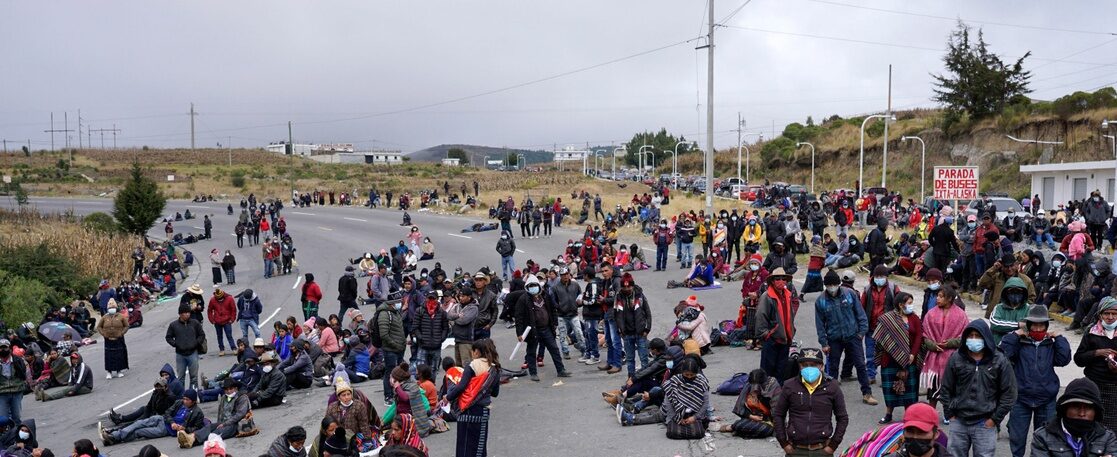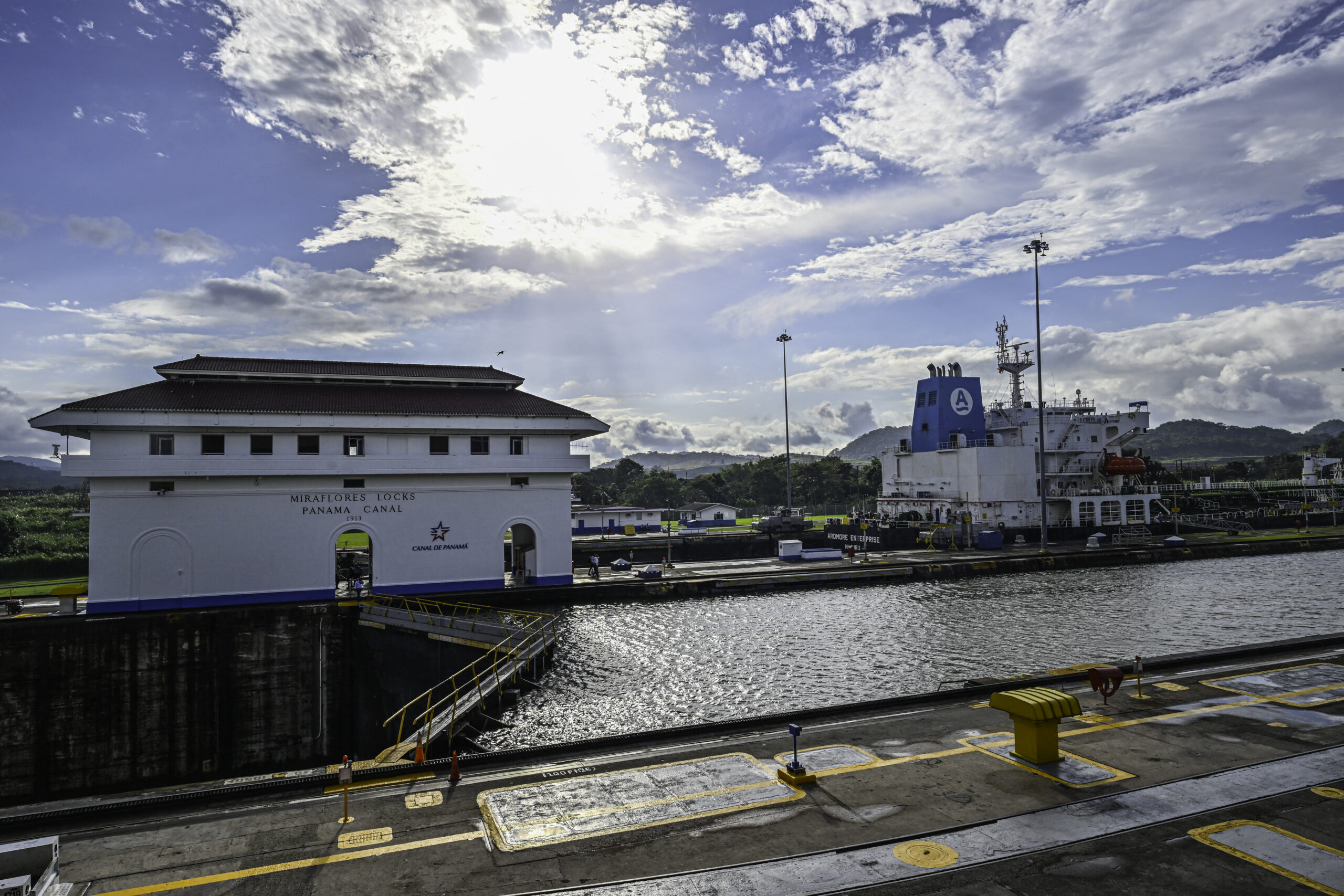Central America
Talks planned to end 100-year Guatemala indigenous dispute

AFP
Hundreds of indigenous people lifted their blockage of a major road in Guatemala on Tuesday after an agreement was reached for talks to resolve a bloody century-old land dispute.
On Monday, members of the Mayan K’iche group had blocked the Interamericana highway with the caskets of 11 of the 13 victims of a weekend massacre in which four children aged between five and 16 were alleged killed with machetes.
The roadblock was lifted after an agreement among residents who had traveled to Guatemala City to meet government officials to try to start talks over a legal border between two rival communities.
“A dialogue will begin in the first half of January, where the issue of the border will be discussed,” said Mateo Tzep, 42, a community leader from Santa Catarina Ixtahuacan municipality that is in conflict with the neighboring Nahuala.
Although both communities are K’iche, they have been fighting over land — at times violently — for more than 100 years.
On Friday night, armed men with “high caliber” weapons ambushed a group of people from Santa Catarina Ixtahuacan who went to the village of Chiquix in Nahuala to pick corn.
The children were cut into pieces and the victims were then burnt inside the truck they were traveling in. A police vehicle was also attacked, leaving one officer dead and two injured.
The Santa Catarina Ixtahuacan community claims those in Nahuala have stolen some of their land.
On Monday, President Alejandro Giammattei declared a month-long state of siege in the two communities, which means demonstrations and the right to carry weapons are banned.
“These events are no longer the product of an ancestral land conflict. They are the direct consequence of an illegal armed and organized group that acted against civilians and security forces through an ambush,” said Giammattei.
He vowed to bring the perpetrators to justice.
Three men carrying M16 rifles were arrested on Sunday. Authorities said they would carry out forensic tests on the weapons to see if they were used in the massacre.
Protesters had blocked the Interamaericana — one of Guatemala’s main highways, which links the capital to the west — with tires, tree trunks, rocks and concrete blocks.
“We don’t want any more deaths, we don’t want any more violence. We are looking for peace and justice,” said a man at the roadblock who identified himself only as Diego.
Indigenous people, many living in poverty, make up more than 40 percent of Guatemala’s almost 17 million population, according to official statistics.
Central America
Panama Canal Monitoring Trade as Middle East Conflict Disrupts Shipping

The Panama Canal Authority (ACP) said Monday it is closely monitoring global maritime trade developments following the conflict triggered by joint U.S. and Israeli strikes against Iran.
However, the ACP described it as “premature” to predict potential consequences for vessel traffic through the interoceanic waterway, which handles roughly 5% of global maritime trade.
“The Panama Canal continuously monitors the evolution of international maritime trade and the dynamics that may influence its flows,” the authority said in a statement. The canal’s main users are the United States and China, connecting primarily the U.S. East Coast with Asia, including South Korea and Japan.
The ACP emphasized that the canal “continues to operate safely, efficiently, and reliably,” providing uninterrupted service to the global maritime community.
Global Shipping Disruptions
The U.S.-Israeli military operation against Iran and Tehran’s retaliatory actions have disrupted global maritime traffic, particularly oil tanker routes.
Shipping giants Maersk and CMA CGM have suspended transits through the Strait of Hormuz as well as crossings via the Suez Canal, the key route linking the Mediterranean Sea and the Red Sea.
As a result, cargo vessels are now rerouting around Africa to reach Europe from the Middle East and Asia — a detour that adds several thousand kilometers and several days to voyages.
Central America
Washington Imposes Visa Ban on La Modelo Director Amid Crackdown in Nicaragua

The United States government announced Wednesday that it has imposed visa restrictions on Roberto Clemente Guevara Gómez, director of Nicaragua’s largest prison, La Modelo, for his involvement in actions that violate human rights.
In a statement, U.S. Secretary of State Marco Rubio said the measure is intended to promote accountability for abuses committed under what he described as the “Murillo-Ortega dictatorship” against political prisoners.
Rubio specified that Guevara Gómez was designated for participating in “a gross violation of the human rights of a political prisoner.” The sanction was issued under the 2024 Department of State, Foreign Operations, and Related Programs Appropriations Act, which bars the sanctioned individual — and potentially immediate family members — from entering the United States.
“United States demands the immediate and unconditional release of all political prisoners unjustly detained in Nicaragua,” the statement added.
Ongoing tensions between Washington and Managua
Washington rejected Nicaragua’s November 2021 elections, in which President Daniel Ortega and his wife, now co-president Rosario Murillo, were reelected while seven potential challengers were in prison.
Relations between the two countries remain tense amid expanding U.S. sanctions and increasing diplomatic pressure on the Nicaraguan government.
On January 10, marking Ortega’s 19 years in power, Nicaragua released “dozens of detainees,” including political prisoners. The move came one day after the U.S. Embassy in Managua stated that “more than 60 people” remain “unjustly detained or disappeared” in the Central American nation.
U.S. officials have continued to push for the “unconditional release” of political prisoners rather than selective or temporary releases.
Ortega, 80, governs alongside Murillo with consolidated authority, having strengthened executive power through constitutional reforms and security measures, while the opposition has been weakened by imprisonment, exile, and the revocation of citizenship and property rights.
Central America
Guatemala’s Attorney General Consuelo Porras Loses Bid for Constitutional Court Seat

Guatemala’s attorney general, Consuelo Porras, who has been sanctioned by the United States over corruption allegations, lost a key vote on Monday in which a public university selected two of the 10 magistrates for the country’s highest constitutional court. However, she could still seek a seat through another nominating body.
The election of five full magistrates and five alternates to the Corte de Constitucionalidad (CC) is taking place gradually over more than two months and is considered crucial in the ongoing struggle for control of Guatemala’s judiciary, which critics say has long been influenced by a political and economic elite accused of corruption.
According to results announced at a press conference, the governing council of the Universidad de San Carlos de Guatemala (USAC) rejected Porras, who had applied as either a full or alternate magistrate, and instead chose two candidates aligned with the university rector. The vote was held at a hotel in Antigua, about 35 kilometers from the capital.
Despite the setback, Porras — whose term as attorney general ends on May 16 — could still be nominated to the Constitutional Court by the Corte Suprema de Justicia, which appoints two magistrates. The remaining six are selected by the president, the bar association and Congress.
“It’s always a possibility,” the 72-year-old lawyer said days earlier when asked by reporters whether she would seek nomination through another institution if she lost the USAC vote.
Porras has been sanctioned by Washington and the European Union for allegedly attempting two years ago to block the inauguration of President Bernardo Arévalo and for pursuing legal actions against anti-corruption prosecutors, judges, journalists and social leaders since taking office in 2018.
The USAC vote was controversial because most members of the university’s governing council are serving beyond the expiration of their terms. Students, academics and social activists staged protests against Porras’ candidacy.
-

 International2 days ago
International2 days agoIran Reports 201 Dead, 747 Injured After U.S. and Israeli Strikes
-

 International5 days ago
International5 days agoCocaine Production Surges 34% in 2023 as Market Expands into Africa and Asia
-

 International4 days ago
International4 days agoTrump Floats “Friendly Takeover” of Cuba Amid Rising Tensions
-

 International2 days ago
International2 days agoPope Leo XIV Urges End to ‘Spiral of Violence’ in Middle East
-

 Sin categoría3 days ago
Sin categoría3 days agoTrump: ‘We Think It’s True’ Amid Claims Iran’s Supreme Leader Was Killed
-

 International3 days ago
International3 days agoSecurity Council to Hold Emergency Meeting on Middle East Crisis
-

 International20 hours ago
International20 hours agoBrazil’s Supreme Court Rejects Bolsonaro’s Bid for House Arrest
-

 International5 days ago
International5 days agoFederal Judge Blocks Trump Policy Allowing Deportations to Third Countries
-

 International4 days ago
International4 days agoArgentina’s Senate Reviews Milei-Backed Labor Overhaul
-

 International20 hours ago
International20 hours agoAnti-ICE Billboard Campaign Targets Immigration Spending in 31 U.S. Cities
-

 International5 days ago
International5 days agoClinton Accuses Republican Committee of Using Epstein Case to Shield Trump
-

 International20 hours ago
International20 hours agoTrump Warns of ‘Major Wave’ of Attacks as Iran Conflict Escalates
-

 International20 hours ago
International20 hours agoMexico Calls for Immediate Probe After National Dies in ICE Custody
-

 Central America20 hours ago
Central America20 hours agoPanama Canal Monitoring Trade as Middle East Conflict Disrupts Shipping
-

 International20 hours ago
International20 hours agoBolivia Orders Three Investigations Into Deadly Military Plane Crash




























